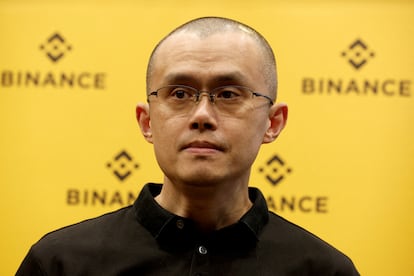Binance: The last great cryptofraud
The platform, which has been delisted and registered ‘unaccounted for,’ has been moving money to places such as Seychelles, Kazakhstan and Lithuania

Binance is the world’s largest cryptocurrency exchange platform. Coinbase is the largest cryptocurrency exchange platform in the United States. The U.S. Securities and Exchange Commission (SEC) has sued both for illegal trading on the stock market. As Bloomberg columnist Matt Levine says, there are two ways to be illegal in this business: one is technical, and the other is stealing.
All crypto trades have been technically illegal in the U.S. since the SEC decided that most crypto assets are not commodities, which are tangible consumer goods such as oil or grain. Instead, they are securities: financial products that represent an interest in a company such as bills, bonds or stocks. Under U.S. law, securities are subject to certain obligations and regulations that commodities are not. For example, they must be registered and authorized by the SEC.
When it announced this resolution two weeks ago, the Commission noted at least 12 cryptocurrencies that were operating in the U.S. without a license. These are the kinds of securities handled by exchange platforms such as Binance and Coinbase. In addition, exchanges have their own cryptocurrencies, which are also securities. This double technical illegality is remedied by paying fines and going through the same annoying and limiting bureaucratic process as the rest of the securities. It is bad for business, but it is not an existential crisis. Then there was the kind of illegality that sank FTX last year. Its CEO and founder, Sam Bankman-Fried, was taking client money without permission and moving it to Alameda Research to conduct financial transactions. That is stealing.
Coinbase deals in unauthorized securities but is unlikely to steal. In addition to being registered in the U.S., it has been listed on the stock exchange since spring 2021. That means it files regular financial reports, is subject to independent audits and other checks designed to ensure investors have access to relevant and accurate information. Binance, meanwhile, is registered “unaccounted for,” is not publicly traded, and has been moving money to places like the Seychelles, Kazakhstan and Lithuania through two crypto-favored banks that have just failed: Signature Bank and Silvergate Bank. With all this, the SEC has filed 13 charges against Binance. Catherine Collay, CEO of Binance in the U.S. until two years ago, has contributed to the research.
According to the SEC and Commodity Futures Trading Commission complaints, Changpeng Zhao (better known as CZ) has moved billions of dollars of customer funds through an opaque corporate network to two of his companies. Money has been moved to Merit Peak, registered in the Virgin Islands, for speculation, money laundering and to buy an $11 million yacht. Cash has also been redirected to a market maker called Sigma Chain, registered in Switzerland. Market makers are businesses that manipulate the market by buying and selling a financial asset to generate liquidity. Alameda Research was a market maker and FTX was only the fourth-largest exchange in the market. The question is: if the SEC ultimately proves that Binance steals from users of its platform in the U.S., is it possible for it to be an honest business in the global marketplace?
Sign up for our weekly newsletter to get more English-language news coverage from EL PAÍS USA Edition
Tu suscripción se está usando en otro dispositivo
¿Quieres añadir otro usuario a tu suscripción?
Si continúas leyendo en este dispositivo, no se podrá leer en el otro.
FlechaTu suscripción se está usando en otro dispositivo y solo puedes acceder a EL PAÍS desde un dispositivo a la vez.
Si quieres compartir tu cuenta, cambia tu suscripción a la modalidad Premium, así podrás añadir otro usuario. Cada uno accederá con su propia cuenta de email, lo que os permitirá personalizar vuestra experiencia en EL PAÍS.
¿Tienes una suscripción de empresa? Accede aquí para contratar más cuentas.
En el caso de no saber quién está usando tu cuenta, te recomendamos cambiar tu contraseña aquí.
Si decides continuar compartiendo tu cuenta, este mensaje se mostrará en tu dispositivo y en el de la otra persona que está usando tu cuenta de forma indefinida, afectando a tu experiencia de lectura. Puedes consultar aquí los términos y condiciones de la suscripción digital.









































